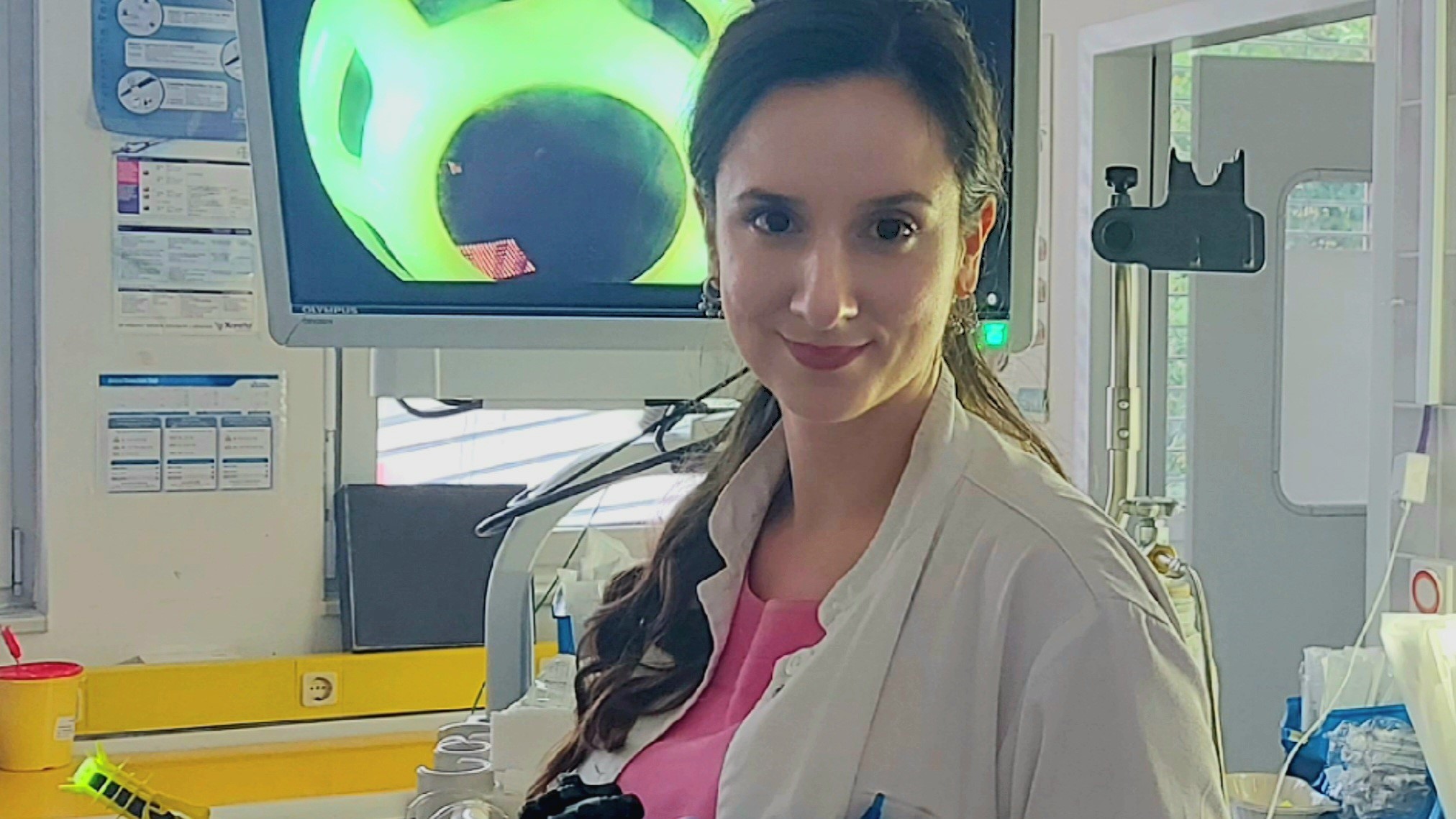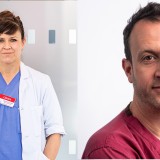
Sara Nikolić is a clinician and researcher based in Maribor, Slovenia. Her work mainly focusses on the pathology of the pancreas. She studies clinical and metabolomic predictors of pancreatitis relapse, and endocrine & exocrine sequelae, and determines cancer risk in people with autoimmune pancreatitis.
Could you tell us a bit about yourself, and why you chose pancreas as your research topic?
I was born in Zrenjanin, Serbia. In 2008, I had the opportunity to move to Maribor, Slovenia, thanks to a merit-based scholarship that allowed me to attend the International Baccalaureate (IB) program. Following the completion of IB, I pursued medical school and was eventually admitted to a gastroenterology residency. Since the end of July this year, I have been serving at the Department of Gastroenterology and Endoscopy at the University Medical Center in Maribor, Slovenia as a specialist in gastroenterology (also ESEGH certified). In parallel, I am a PhD candidate at the Department of Medicine Huddinge at Karolinska Institutet focusing on autoimmune pancreatitis.
Pancreas has chosen me. It was one of those serendipity moments in life, when I met the pancreas research group from Karolinska Institute at my first UEG Week in 2017. At the time, I was just a first-year resident enchanted with UEG, exploring the conference and interacting with people. Now, after many hours of studying and many patients with pancreatic diseases, I consider the pancreas, a.k.a. the central organ, the most fascinating one. It is multi-talented, occasionally painful, and even deadly. Also, it is challenging to research as it is “far behind” in the abdomen, and specific markers that could measure pancreatic damage or detect cancer are still a mystery.
You are also working with autoimmune pancreatitis. More than one-third of cases of autoimmune pancreatitis are discovered in asymptomatic patients. Could you give us some tips to evaluate such patients?
Identifying asymptomatic patients with autoimmune pancreatitis can be quite challenging. In our Karolinska cohort, we have observed that approximately 10% of type 1 AIP cases and 15% of type 2 AIP cases are incidental. What is more, according to findings by the PrescrAIP study group, the proportion of asymptomatic patients is even lower. We do not have any tips on how to look for incidental AIP patients, they are usually discovered by imaging. It's worth noting that asymptomatic AIP patients generally experience a mild disease course, with infrequent relapses and rare complications such as pancreatic exocrine insufficiency or diabetes mellitus. Occasionally, treatment is indicated due to the presence of a mass detected on imaging. On the other hand, the most burdensome are patients presenting with jaundice, abdominal pain, weight loss (mimicking cancer), having an aggressive, relapsing disease course with multiple organ involvement, demanding multiple pulses of corticosteroids and/or even rituximab.
What is the role of teamwork in managing pancreas pathologies at your institution?
When it comes to the management of pancreatic diseases, in both my institutions, multidisciplinary teamwork is essential. The recipe for success involves a pancreatic surgeon, a hepatopancreatobiliary endoscopist (EUS, ERCP), a radiologist and a pathologist with pancreas-focused expertise, as well as a gastroenterologist-pancreatologist. Excellent availability of imaging, endoscopy, and regular MDT meetings are of vital importance in pancreas-related decision-making.
What advice may you give to beginners that wish to proceed with their career in gastroenterology?
Visit the UEG webpage promptly and make the most of the opportunities it offers. Understanding your specific niche within the broad field of gastroenterology may take time, so be patient and flexible. If you possess ambition and a genuine interest, consider combining research with your rigorous clinical responsibilities. Seek out a mentor who can guide you along the way. Be fearless, be assertive, but also self-critical and grateful. It is a privilege to help people with their digestive problems, but remember to savor the journey, hopefully creating a few meaningful friends among your international colleagues.




Please log in with your myUEG account to post comments.